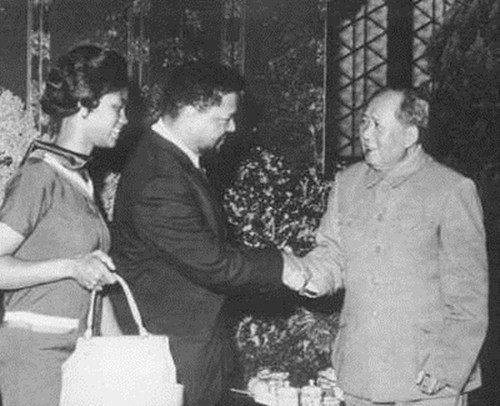What is history: it is the echo of the past to the future, the reflection of the future on the past. - Hugo
In World War II, China was an important country in the anti-fascist alliance, but what is surprising is that China, which made the greatest contributions and sacrifices in the war, did not receive a penny of reparations.
And the smaller countries that destroyed much less than China in the war were compensated, with the Philippines receiving $550 million, Myanmar receiving $200 million, even South Vietnam receiving $39 million in reparations, and Indonesia receiving $200 million.
Why is China giving up hundreds of millions of dollars in reparations?
During Nixon's visit to China, Japan was very shocked, and under international pressure, Japan made a surprising move, secretly sending a letter to Zhou Enlai, saying that he wanted to "personally visit China", but Zhou Enlai refused.
In fact, when New China was first founded, the leaders were inclined to the harmony between their neighbors and were unwilling to engage in antagonism, and Zhou Enlai's refusal to japan was not unwilling for Japan to visit China, but at that time Japan recognized chiang kai-shek and concluded treaties.

After Japan's surrender in 1945, we could have received hundreds of millions of dollars in reparations, but the Nationalist government fell into civil war, then lost, and lost the support of the United States, which made China give up its claim to Japan.
Japan was faced with two choices: one was to conclude a treaty with the "Republic of China" and the other was to restore friendly diplomatic relations with the "People's Republic of China," and the "Republic of China" had no choice but to give up "labor compensation" in order to win peace talks with Japan.
The mainland does not recognize this treaty, but this treaty has already been written and entered into force, and we have no choice but to do so; moreover, with the end of World War II and the restoration of friendly diplomatic relations between various countries, Sino-Japanese relations should become normal and in line with foreign policy, and it is unavoidable.
After Japan's Tanaka Kakuei cabinet came to power, it expressed its intention to restore diplomatic relations with China on the same day, and Zhou Enlai reacted on the same day by saying quickly: "The establishment of the Tanaka cabinet is welcome, and the normalization of Sino-Japanese diplomatic relations must be stepped up." He sent someone to tell the Tanaka cabinet: "As long as you can come to Beijing to talk, everything can be discussed." ”
If Japan wants to win China's support, it must make its position clear; the original treaty signed with Chiang Kai-shek must be null and void, recognize the People's Republic of China as the sole legitimate government, and recognize Taiwan as inalienable territory of China. In this negotiation, the two sides finally reached an agreement after difficult discussions.
The Japanese side said: "Japanese militarism has caused China to suffer, killing tens of millions of Chinese, China's private property and public property add up to tens of billions, and China has the right to claim compensation for losses." Since Japan opened its mouth, it showed that the amount of compensation was quite large, but China gave up the compensation after careful consideration.
Before the Japanese Tanaka cabinet visited China, Chairman Mao asked Zhou Enlai to convey to the Japanese Tanaka cabinet, "For the sake of the friendly relations between China and Japan, we should abandon the demand for war reparations to Japan and step up the normalization of Sino-Japanese diplomatic relations." ”
This can't help but remind people of Zhu Yuanzhang, who also included Japan in the "country of non-conquest" after deep chanting. Only when China is really strong, all enemies will not be enemies, and all threats will not be threats.
There are historical reasons why China made such a decision, and it was also because China was too weak and too passive in diplomacy, and in any case, the restoration of Sino-Japanese diplomatic relations was very beneficial to China at that time, so Chairman Mao made such a reply.
The twenty-seven-year-old reparations issue between China and Japan has finally come to an end, and China's strength is just around the corner.